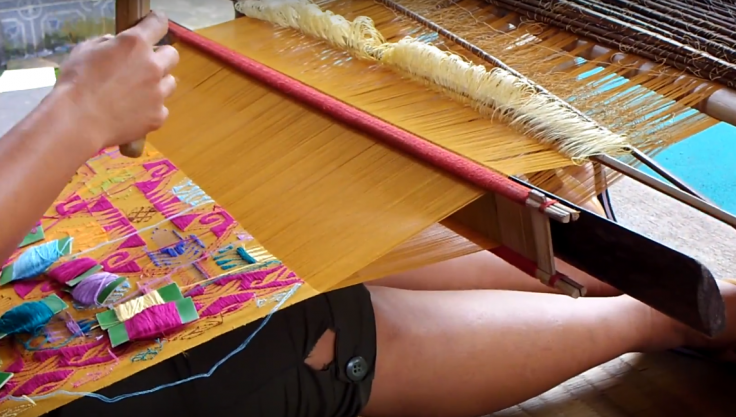
A new research has stated that new smartphone apps and greater use of social media could help reduce the exploitation of traditional weavers in poor rural regions of Malaysia.
Cloth trade in the Malay regions was found to be very biased, with merchants gaining heavily from the fabric trade, and losses incurred by the producers. Songket is the most popular traditional Malay fabric woven using cloth and gold threads.
A study was conducted to understand the whys and hows of the situation, wherein an interdisciplinary team of researchers, including experts in human-computer interaction, information management, and English and creative writing were roped in to study the supply chain of the Songket fabric market in the Malaysian state of Terengganu.
This fabric is made in homes of almost isolated rural villages, dominated by women weavers with limited education, who could rarely own the raw materials or equipment. Hence, merchants play vital role while providing raw materials and buying the product to be sold in markets. They make most of the profits from the sale of garments, while the women producers are left at the mercy of these traders.
The study group also found that the women were barely paid subsistence wages, despite the amount of work involved. A simple piece of Songket can take a month to make, with more elaborate designs taking much longer, however skilled the weavers may be.
In fact, weavers are kept out of the relationship from the customers as the traders play the usual mediatory role, said Professor Corina Sas of Lancaster University, co-author of the research. She said, "Weavers have limited awareness of their vulnerable position because of their longstanding relationships with merchants, which for some has been built over several generations".
After understanding the dynamics of the trade and the interference of the middlemen, the research observed that new designs of digital technology could help weavers to transition to selling their wares directly. Their work could be shared on online platforms used by weavers for prospective customers.
Min Zhang of Lancaster University, co-author of the research, said: "Technological solutions will increase weavers' visibility in the market, and they will learn of the less exploitative transactions available, such as weaving for their own customers."
But it was mentioned that gaining independence would take time. "Therefore, to ensure no loss of wages, the new solutions should co-exist, for a while, alongside the current exploitative relationships."
This solution will reduce cost of transportation. It can widen the customer reach, and can be accessed by people around the globe, creating a larger customer base. Cottage industries can be recognized and aided efficiently through this method.
This research is published in the form of a discussion paper Designing for the Infrastructure of the Supply Chain of Malay Handwoven Songket in Terengganu.








